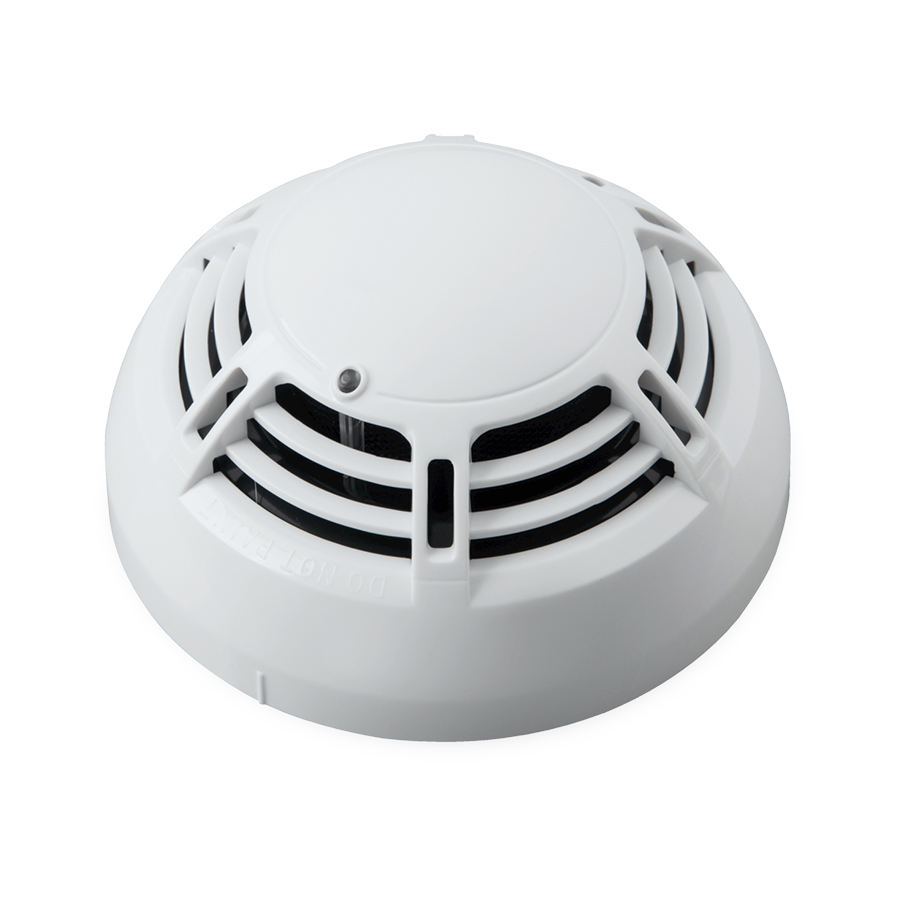Copyright © 2021 TANDA Development Pte. Ltd. All rights reserved.Privacy Policy.Site MapDesigned by

In times of emergency, every second counts. Optical smoke alarms play a crucial role in ensuring early detection of smoke and swift action in fire emergencies. In this article, we'll explore the significance of optical smoke alarms, their functionality, and their contribution to enhancing safety and security in residential and commercial settings.

Optical smoke alarms are designed to detect the presence of smoke particles in the air, signaling the potential onset of a fire. Early detection is critical for providing occupants with the earliest possible warning, allowing them to evacuate the premises promptly and alerting emergency responders to the situation.
Optical smoke alarms utilize an advanced detection method to identify the presence of smoke particles in the air. Here's how they work:
Light Source and Sensor: Optical smoke alarms consist of a light source, typically an LED, and a light sensor positioned within a detection chamber. The light source emits a steady beam of light, while the sensor detects any changes in the light intensity.
Smoke Detection: When smoke enters the detection chamber, it scatters the light emitted by the light source. This scattering effect causes the light sensor to detect a reduction in light intensity.
Activation of Alarm: The reduction in light intensity triggers the fire alarm system, causing it to emit a loud audible alert and often activating visual indicators such as flashing lights. This alert notifies occupants of the presence of smoke and the potential fire hazard.
Early Warning: Optical smoke alarms are highly sensitive to even small amounts of smoke, allowing for early detection of fire hazards. This early warning gives occupants valuable time to evacuate the premises safely and alert emergency services.
Minimal False Alarms: Unlike other types of smoke alarms, optical smoke alarms are less prone to false alarms caused by cooking smoke or steam. This reduces the likelihood of unnecessary disruptions and ensures reliable detection in emergency situations.

Overall, optical smoke alarms provide reliable and efficient detection of smoke, offering early warning of fire hazards and facilitating swift action to mitigate the risk of injury or property damage in the event of a fire.
Early Detection: One of the primary benefits of optical smoke alarms is their ability to provide early detection of smoke particles in the air. These alarms are highly sensitive to the presence of smoke, allowing them to detect fires in their incipient stages, providing occupants with valuable time to evacuate safely.
Reduced False Alarms: Optical smoke alarms are less prone to false alarms caused by cooking smoke or steam compared to other types of smoke alarms. Their advanced detection technology minimizes the likelihood of unnecessary alerts, ensuring that occupants only receive warnings when there is a genuine fire hazard.
Enhanced Sensitivity: Optical smoke alarms are highly sensitive to smoke particles, detecting even small amounts of smoke with precision. This sensitivity ensures reliable detection of fires, even in their early stages or when smoke levels are low, providing occupants with timely warnings and preventing the escalation of fire incidents.
Versatile Applications: Optical smoke alarms are suitable for a wide range of residential and commercial applications, including homes, apartments, offices, hotels, and healthcare facilities. Their versatility makes them an ideal choice for various building types and occupancy scenarios, ensuring consistent and effective fire detection across different environments.
Easy Installation and Maintenance: Optical smoke alarms are easy to install and require minimal maintenance, making them a convenient and cost-effective solution for fire detection. Most models are battery-powered or hardwired into building electrical systems, with simple mounting procedures that can be completed by homeowners or professional installers.
Compliance with Regulations: Optical smoke alarms comply with relevant safety standards and regulations established by authorities having jurisdiction (AHJs) and building codes. Compliance ensures that the alarms meet minimum safety requirements and adhere to best practices for fire safety in residential and commercial buildings, providing peace of mind for occupants and property owners.
In conclusion, optical smoke alarms are indispensable components of fire safety systems, ensuring early detection and swift action in emergencies. Their sensitivity, reliability, and ease of installation make them an essential investment for residential and commercial properties alike. As a homeowner or property manager, prioritizing the installation of optical smoke alarms can significantly enhance the safety and security of your premises, providing peace of mind and protecting lives and property in the event of a fire emergency.